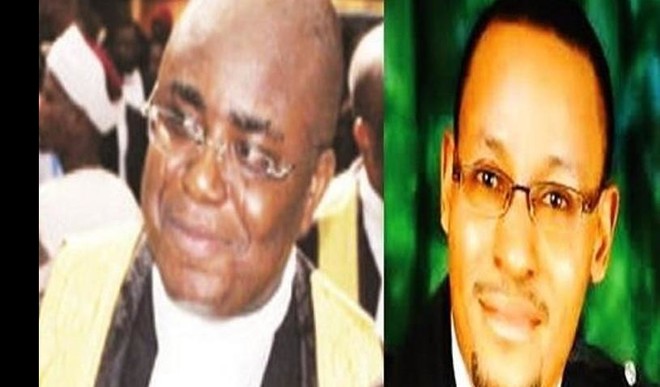Can a lawyer walk out on a judge?
Chief Okoi Obono-Obla: That action is condemnable and very unprofessional for lawyers to have walked out on the court after they were overruled. I will describe their action as a gimmick to intimidate the tribunal. The judge was right in his decision which is under the Administration of Criminal Justice Act sections 305 and 306. […]


Chief Okoi Obono-Obla: That action is condemnable and very unprofessional for lawyers to have walked out on the court after they were overruled. I will describe their action as a gimmick to intimidate the tribunal.
The judge was right in his decision which is under the Administration of Criminal Justice Act sections 305 and 306. It would have been judicial rascality if the judge closed its eyes on the existence of the new law and went ahead to give the ruling.
Joe Agi (SAN): They did not walk out on the tribunal, they only withdrew their services. What they did was to bow and go. I think it’s courtesy to say, ‘Well I am paid to defend a client and if circumstances do not allow me to continue rendering that service, the most honourable thing would be for me to withdraw my service.’ I’m sure they gave their reasons. So it would be wrong to say they walked out.
Dame Carol Ajie: Section 233 of the Constitution of the Federal Republic of Nigeria 1999 gives the Right of Appeal from the decisions of the Court of Appeal to the Supreme Court where the ground of appeal involves question of law alone and this right has been exercised by Senate President to the exclusion of any other court.
The Constitution indisputably, the grundnorm no other law can take Senate President’s right of appeal from him and by conduct ‘quash it’.
Ahmed Raji (SAN): At the resumed hearing of the case against Dr. Abubakar Bukola Saraki (‘our client’) before the Code of Conduct Tribunal on the said 5th November, 2015, we, as defence counsel, notified the honourable tribunal that we have filed an appeal to the Supreme Court against the decision of the Court of Appeal, wherewith we filed a Motion on Notice for Stay of Proceedings of the honourable tribunal pending the determination of the appeal.
“Consequent on the foregoing, and citing a plethora of judicial authorities on the point, we respectfully urged the honourable tribunal to adjourn the matter pending the determination of our client’s appeal filed at the Supreme Court or in the least, to await the outcome of the Motion on Notice for Stay of Proceedings filed at the Supreme Court.”
“However, the honourable tribunal overruled our application and insisted on continuing with the case. At that juncture, and conscious of my responsibilities to the defendant, I sought the leave of the honourable tribunal to withdraw my appearance and that of other defence counsel which was granted by the honourable tribunal. It was on that basis that I left the venue of the tribunal’s sitting. I did not at any point use or utter the words “judicial rascality”.
Adam Olori-Aje Esq: A lawyer, whether senior or junior, is an officer of the court. He is obliged to conduct his affairs before a court (whether a superior or inferior court) in a manner that shows utmost respect, dignity and honour to the court. On no circumstance should a lawyer, a senior advocate for that matter, display his grievances against a court by staging a workout in a court.
Needless to reiterate that, a court is an honourable institution and lawyers are its` ministers. It must not be handled like a political arena where people of opposite partisan interests display their opposition by staging a workout.
Legal practice is guided by law and rules of professional conduct ex facie and in facie curie. A lawyer under Order 31 of the Rules of Professional Conduct 2007 is mandated to always treat the court with respect and dignity. It is also mandated on a lawyer appearing before a judicial tribunal or a court to accord due respect to such court or tribunal and treat the court in his manners with courtesy and dignity. A very senior member of the bar walking out of the court cannot be said to have treated the court with honour and dignity.
May I state here with humility that courtroom decorum is guided by our laws. Order 36(b) of the Rules of Professional Conduct imposes on a legal practitioner to compulsorily conduct himself decently and with decorum before a court of law.
In conclusion, the action of the learnt silks is unequivocally a breach of the rules of the legal profession and a professional misconduct which cannot be justified in any way.
